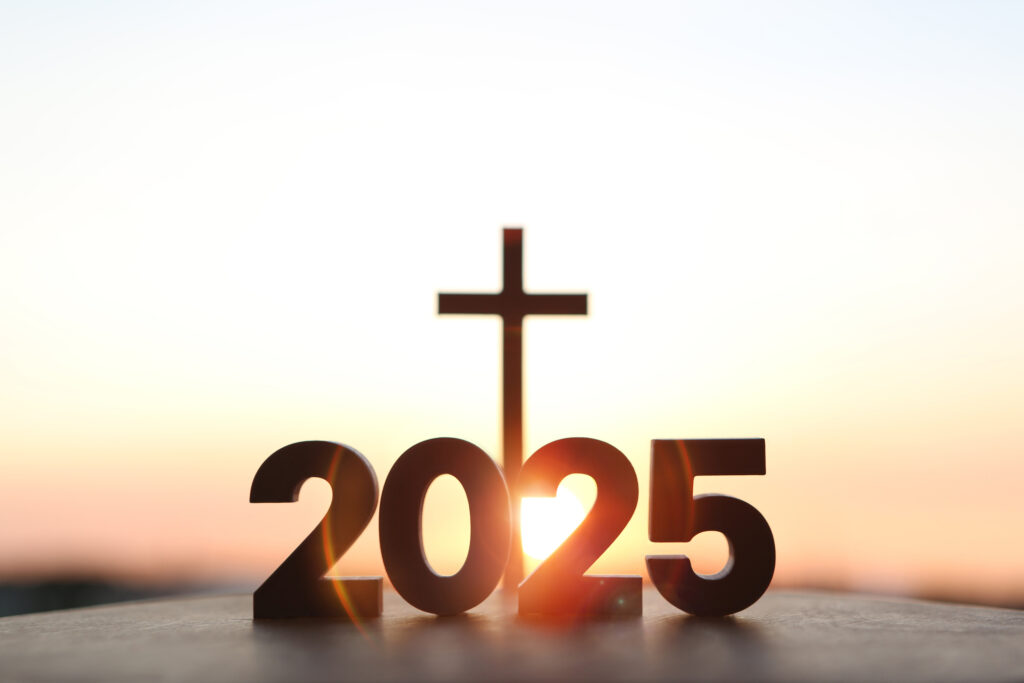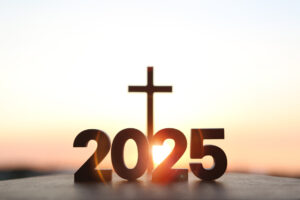
Theological truths remain unchanged regardless of the date on the calendar, as do many ministry realities. The context surrounding Christians and churches, however, is constantly changing.
As pastors and church leaders think about ministering to their congregations and communities in 2025, they should keep these key trends in mind.
1. The religious landscape is changing
Church attendance and membership continue to fall, according to Gallup. Trust in pastors has reached an all-time low. Previously, the percentage of Americans who said they were unaffiliated with any religion, commonly referred to as the “nones,” had been steadily growing. But that growth has slowed or even stopped according to most research organizations. The rise of the nones could be over.
In Gallup’s religious identification study, nones have been plateaued between 20%-21% since 2017. The General Social Survey tracked an increase until 2022 when a 1.5 percentage point drop occurred. Similarly, Pew Research found a drop from 31% in 2022 to 28% in 2023.
This has not coincided with significant growth for Christianity in the United States, but it does paint a more encouraging statistical picture than has been the case recently. Americans are not currently becoming less religious in their attitudes even if many of their practices continue away from church. The coming years present a moment of opportunity.
2. Church pews and sporting fields are in competition
Around 3 in 10 U.S. Protestant churchgoers believe it is OK to skip church at least a few times a year to watch a favorite team or sporting event, according to Lifeway Research. But perhaps a greater issue is travel sports for children and teenagers.
In 2022, those ages 6-18 were involved in sports for 16.6 hours a week, according to an Aspen Institute report. This often involves families traveling during the weekends for games and tournaments.
Lifeway Research found churchgoers and pastors disagree over how often it’s OK to skip church for kids’ sports. Pastors are twice as likely as churchgoers to say it is never acceptable to miss services for kids’ sporting events (36% v. 18%). Navigating this divide will be a major issue for many pastors.
3. Support for same-sex marriage has plateaued
While more Americans than ever before identify as LGBTQ+, especially among young people, support for same-sex marriage has stopped growing, including among Protestant pastors. From 2010 to 2019 support for same-sex marriage increased among pastors from 15% to 24%, exclusively driven by a 15-point jump among mainline pastors, according to Lifeway Research. By 2023, however, support remained statistically unchanged at 21% overall.
4. Churchgoers feel more cultural pressure
As U.S. Protestant churchgoers look out on the culture, they believe there is a growing rejection of Christianity. According to Lifeway Research, 7 in 10 churchgoers (69%) believe people’s perception of Christians in the U.S. are getting worse. Only a slight majority (53%) say most Americans have a positive opinion of Christians. This may be why a 2023 Lifeway Research study found 63% of U.S. Protestant pastors say there is a growing sense of fear within their congregations about the future of Christianity in our nation and the world.
5. Small groups remain an important aspect of discipleship
Among U.S. Protestant churches with ongoing adult Bible studies, the average church has seven groups with 69 weekly participants, according to Lifeway Research. Around 2 in 5 worship attendees at the average church (44%) also typically participate in small groups. Many congregations have found their small group participation declining. Growing churches will find ways to draw more people into small group discipleship for the good of their congregation and those individuals.
6. Many Americans and churchgoers remain consumeristic
The apostle Paul said “godliness with contentment is great gain” (1 Timothy 6:6, CSB), but many Americans, including some churchgoers, have a more consumeristic mindset. Most Americans have a mix of values between contentment and consumerism, according to Lifeway Research, but around 3 in 10 (29%) are classified as prolific consumers.
Those who attend religious services more than once a week are the most likely to say shopping makes them feel worthwhile (61%) and they know they are getting ahead when they have nice things (56%). They are also among the most likely to say they are driven to accumulate nice things (61%) and to have the latest technology (55%).
7. Churches aren’t addressing some community issues
More Americans are dying of opioid abuse, but fewer churches are serving those with opioid addictions. A Lifeway Research study found U.S. Protestant pastors are just as likely to say someone connected to their church has been personally affected by opioid abuse today as compared to five years ago. They are less likely, however, to report their church is providing spiritual support or any type of support group for those dealing with substance abuse.
Additionally, pastors remain opposed to sports betting but have not become as involved as they said they would once it became legalized in their state, according to Lifeway Research. In 2018, only 5% said they wouldn’t feel the need for their church to address this issue if it became legal. By 2023, however, with sports gambling legalized across most of the United States, 56% now say they don’t feel the need to address it.
8. Churchgoers have opportunities to invite others to church
Lifeway Research found 3 in 5 U.S. Protestant churchgoers (60%) say they have extended at least one invitation in the past six months for someone to attend their church. When asked why they don’t bring guests more often, more than a quarter of churchgoers (27%) say they don’t know anyone to invite. Yet, an additional Lifeway Research study found most churchgoers (71%) say they have non-Christian friends.
9. Biblical illiteracy should be addressed
When asked to name their favorite Old Testament story, 4 in 5 U.S. Protestant churchgoers offered a narrative from the first half of the Bible, but 11% gave a New Testament story, 7% said they didn’t have a favorite story, and 3% weren’t sure, according to Lifeway Research. Additionally, many churchgoers aren’t confident in their ability to retell some key Old Testament stories like Abraham being asked to sacrifice Isaac and Daniel in the lion’s den. Others said they could accurately retell the biblical story of Romulus and Remus, even though that’s from Roman mythology, not Scripture.
10. Churchgoers want sermons that address cultural issues but not endorsements
Sitting in the pew, U.S. Protestant churchgoers say they want to hear sermons that help them understand and address cultural issues, according to Lifeway Research. Four in 5 (80%) believe a pastor must address current issues to be doing their job.
This does not mean, however, that they expect to hear their pastor endorsing a political candidate. Around a third (35%) of Christians who attend a worship service at least once a month believe it is acceptable for a pastor to offer an endorsement during a church service, according to Lifeway Research.
As pastors and other church leaders seek to minister in 2025, they should keep in mind these changing cultural and church trends to provide biblical help and truth where it is needed most.
This article originally appeared at research.lifeway.com.

















